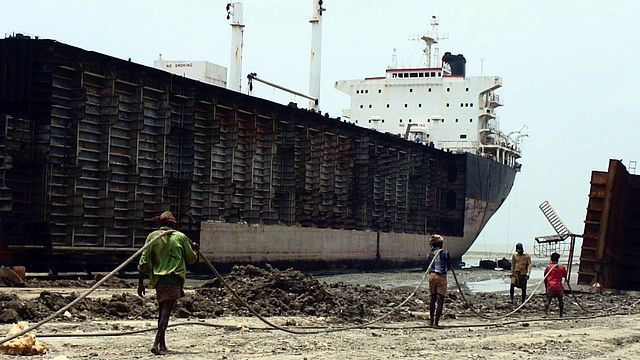A set of rules coming into force in 2017 would require all ships flying European flags to use only salvage yards approved by the EU.
That list would not include the yards on Alang beach in India where ships are scrapped directly on the open beach. The beaches are notorious for dangerous working conditions where underpaid workers with basic tools are responsible for the dismantling of the old ships.
“We must stop the intense lobbying from Maersk, the largest shipping company in the world,” SF’s Margrete Auken told DR Nyheder.
“We must enforce EU legislation that EU ships should be scrapped under circumstances that take into account the environment, the marine environment and the working environment. That does not include open beaches.”
Not approved
Five salvage yards on Alang have applied to be on the EU’s white-list, including the Shree Ram yard where two Maersk ships are currently being dismantled. Auken said that she and her fellow MEPs would not approve the Alang yards.
“I want to make sure that the commission stands firm on EU legislation and does not plan to accept Maersk’s desire that beaches can be used to scrap ships.”
READ MORE: Maersk in hot water for sending ships to notorious scrapping beaches
Auken said that beach scrapyards were “exploding” with hazardous waste and appalling working conditions, and that approving them would “undo all of the progress we have achieved in the past 20 years”.
Maersk to present its case
Maersk has previously been quoted as saying it would consider reflagging its ships to non-EU countries if the best yards on Alang are not white-listed.
“There is a need to find a global solution that is sustainable environmentally, occupationally and commercially,” Maersk said in a written comment.
The company will present its case concerning ship salvaging in November in Brussels.















